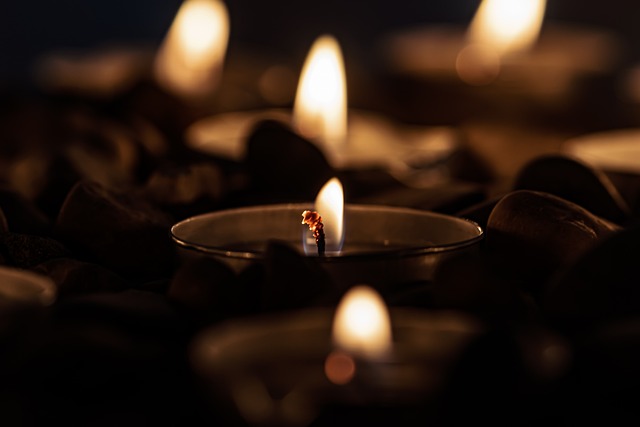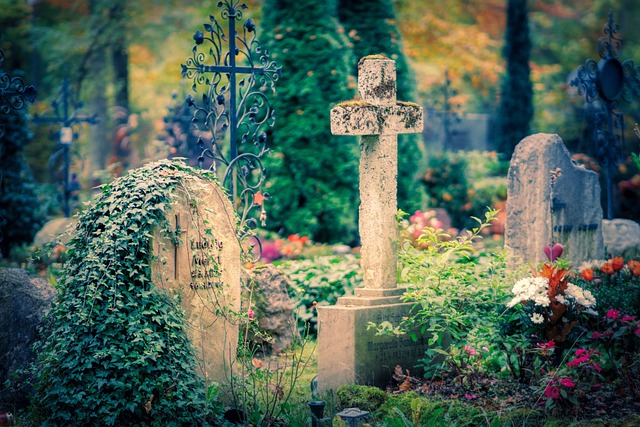Dignified funeral plans are essential in today's society to honor a loved one's life according to personal beliefs, preferences, and cultural traditions. These plans involve personalization through open dialogue with family and friends, choosing the right venue based on service type and preferences, selecting meaningful floral arrangements, meticulous logistics management, and navigating legal and financial complexities. By prioritizing these elements, families can create a peaceful, respectful send-off that celebrates the deceased's legacy in a memorable way.
“Planning a funeral can be an overwhelming task, but creating dignified funeral arrangements is an essential tribute to a life well-lived. This comprehensive guide aims to empower smart planners with the knowledge to honor the deceased with meaningful ceremonies and thoughtful tributes. From understanding the profound significance of dignity to navigating legalities, we’ll explore each step required to create personalized plans that reflect the life being celebrated. Discover how to transform sorrow into memorable tributes, ensuring a respectful farewell.”
- Understanding the Importance of Dignified Funeral Arrangements
- Creating a Personalized Plan: Respecting the Deceased's Wishes
- Choosing the Right Venue and Ceremony Options
- Selecting Flowers and Memorial Decorations with Care
- Managing Logistics: Practical Considerations for Family and Friends
- Legal and Financial Aspects: Ensuring Smooth Execution
Understanding the Importance of Dignified Funeral Arrangements

In today’s fast-paced world, it’s easy to overlook the significance of dignified funeral arrangements. However, this aspect plays a crucial role in honouring the life and memory of a loved one who has passed away. Planning ahead allows individuals and families to ensure their final send-off aligns with personal beliefs, preferences, and cultural traditions, fostering a sense of peace and respect during an emotional time.
Dignified funeral plans extend beyond choosing a venue or setting a date. They encompass every detail, from the type of services offered to the selection of flowers and music, aiming to create an atmosphere that reflects the deceased’s essence while providing solace for grieving loved ones. By prioritizing these arrangements, families can pay tribute to their loved ones with care and consideration, ensuring a meaningful and memorable farewell.
Creating a Personalized Plan: Respecting the Deceased's Wishes

When planning a funeral, one of the most important aspects is creating a personalized plan that respects the deceased’s wishes and reflects their unique life. This involves having open and honest conversations with the family members and close friends to understand their preferences and desires for the send-off. It could include specific cultural or religious traditions they wanted to follow, choices for music, readings, or even the type of service they envisioned—a simple gathering or a grand celebration.
By incorporating these personal touches, you ensure that the funeral arrangements are not only dignified but also meaningful and comforting for those left behind. It allows for a final tribute that pays homage to the life lived, providing a sense of closure and ensuring the deceased’s legacy is celebrated in a way they would have wanted.
Choosing the Right Venue and Ceremony Options

When planning a dignified funeral, selecting the right venue is a critical first step. Consider the nature of the service and the preferences of the deceased or their family. A serene and peaceful setting might be ideal for a traditional ceremony, while a more contemporary space could accommodate unique and personal tributes. Outdoor venues offer a tranquil environment, allowing nature to play a part in the celebration of life. Alternatively, indoor spaces with beautiful architecture can create an atmosphere of elegance and respect.
The type of ceremony greatly influences venue choices. Whether it’s a traditional funeral service, a memorial gathering, or an interment with a reception, each requires specific considerations. For instance, a church or chapel provides the perfect backdrop for religious ceremonies, while a crematorium is more suitable for direct cremation services. Community halls or garden settings can host larger gatherings, ensuring ample space for family and friends to pay their respects. Remember, the venue should reflect the dignity and significance of the occasion, making it an integral part of your well-thought-out dignified funeral plans.
Selecting Flowers and Memorial Decorations with Care

When planning a dignified funeral, selecting flowers and memorial decorations is more than just an aesthetic choice—it’s an essential part of creating a memorable and respectful atmosphere. Opt for classic, timeless arrangements that reflect the deceased’s personality or preferences, ensuring they align with the overall theme of the service. Consider the colors, textures, and types of blooms to convey specific emotions; for instance, lilies symbolize purity and peace, while roses represent love and sympathy.
Take time to research florists who specialize in funeral arrangements, as their expertise can ensure the decorations are both visually stunning and culturally appropriate. Discuss with them the type of event—a traditional service, a celebration of life, or something unique—and any specific cultural or religious requirements. Their guidance will help create a dignified setting that honors the memory of the departed while providing comfort to grieving loved ones.
Managing Logistics: Practical Considerations for Family and Friends

When planning a dignified funeral, one of the primary tasks for family and friends is managing the logistics. This involves coordinating with various service providers, such as funeral homes, cemeteries, or crematoriums, to ensure everything runs smoothly on the day of the ceremony. It’s essential to discuss preferences and make decisions regarding transportation, venue arrangements, and floral designs well in advance to avoid last-minute stresses.
Practical considerations include securing appropriate permits if necessary, arranging for guest accommodations, and managing catering or meal options. Additionally, creating a detailed schedule for the funeral service, including any special rituals or customs, helps maintain a sense of order and allows everyone involved to prepare accordingly. Effective logistics management contributes significantly to honoring the departed individual with a dignified and memorable farewell.
Legal and Financial Aspects: Ensuring Smooth Execution

When planning a dignified funeral, it’s crucial to understand the legal and financial intricacies involved. This aspect guarantees that all formalities are met, ensuring a smooth and respectful process. One key consideration is designating a competent executor who will manage the estate and make essential decisions according to your wishes. This person should be someone you trust implicitly, as they’ll be responsible for handling financial matters, paying bills, and overseeing the funeral arrangements.
Additionally, having valid legal documents in place, such as a will and power of attorney, is paramount. These documents ensure that your assets are distributed according to your preferences and provide clear guidance on your funeral wishes. It’s wise to consult with an attorney or financial advisor to create comprehensive plans, ensuring peace of mind and a dignified send-off.
Planning a funeral is an incredibly sensitive task, but with careful consideration and a thoughtful approach, it can be a powerful way to honour a life well-lived. By creating dignified funeral arrangements, you can ensure that the celebration of a loved one’s life reflects their unique personality and wishes. From personalising the ceremony to managing practical logistics, each step contributes to a meaningful send-off. Remember, with thoughtful planning, you can create a truly memorable tribute that provides comfort and closure for family and friends during an emotional time.















